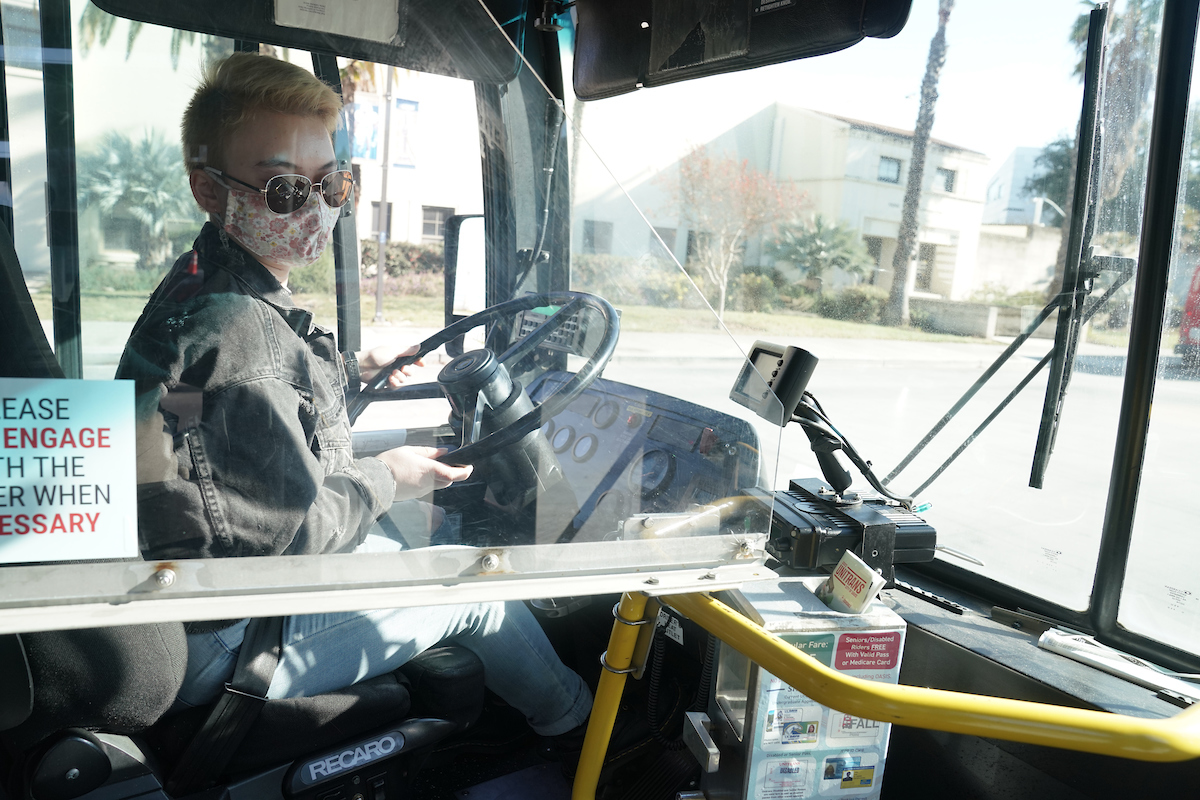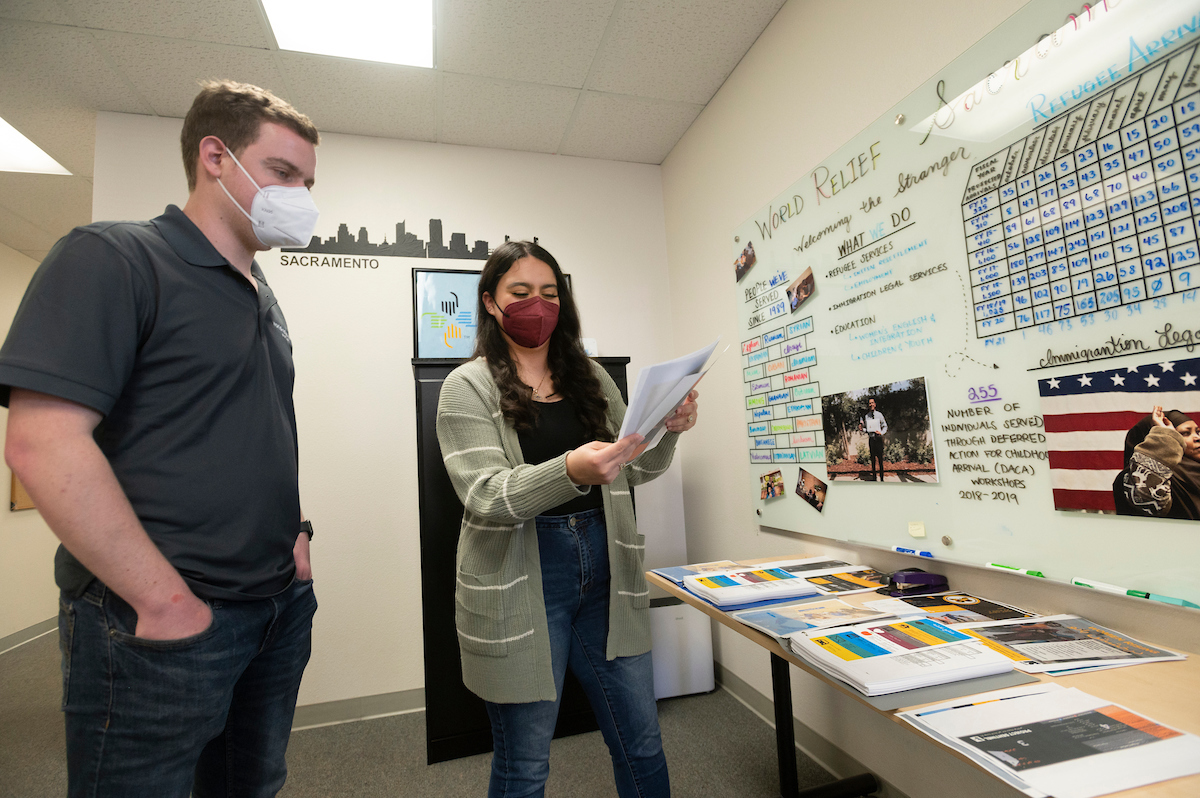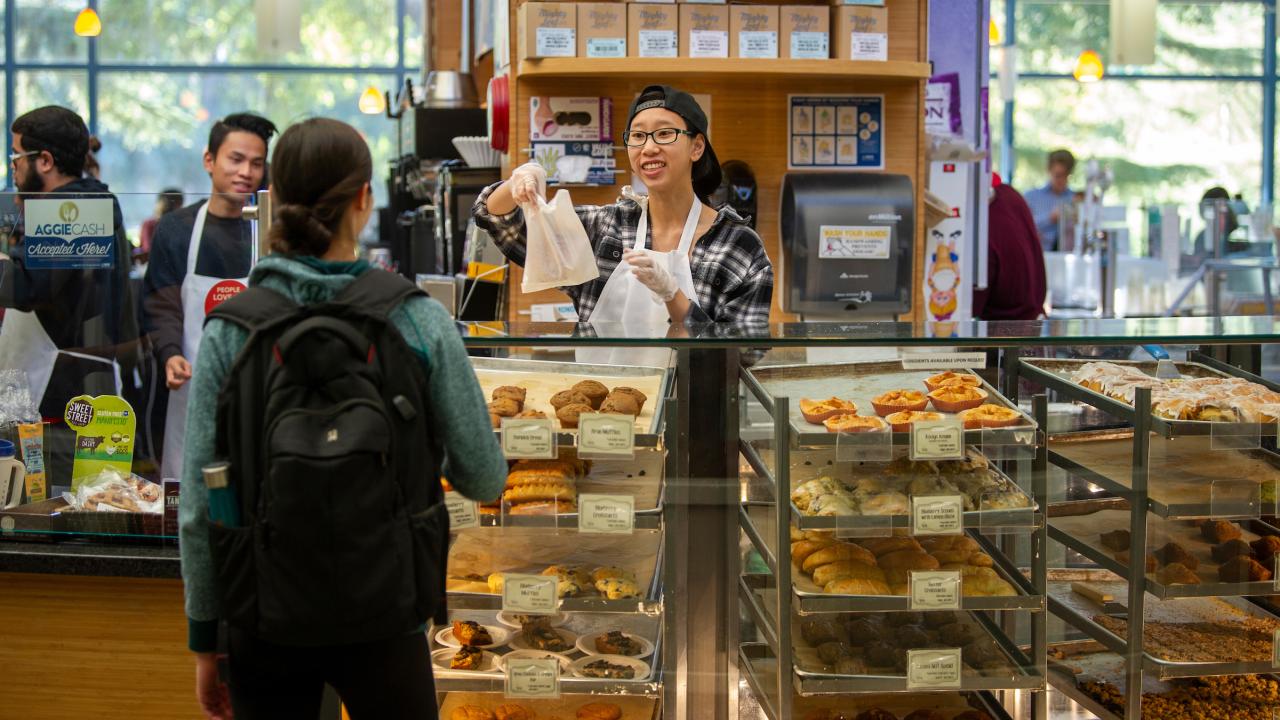Most of us, at some point, get our first job. It might be bagging groceries at Trader Joe’s, an unpaid internship or temp work right out of college. First jobs can create a range of emotions. Looking for one can be scary (and exciting). Working in one can be rewarding (and stressful). And leaving one can be a combination of all of these feelings (and more). When it comes down to it, where you worked your first job doesn’t matter as much as what you learned from your first job.
My first “job” was at a branding, marketing and public relations agency in my desert home of the Coachella Valley. At the ripe age of 17, I jumped right into social media copywriting for more than eight clients. I drafted social media content for clients a month in advance and I sat in on business meetings to provide my “youthful insight.” But more than all this, I learned about myself.
Why a first job doesn’t matter

I got my first job. So what? First jobs are all about learning about yourself. My first job taught me just how much I loved social media. It started a chain reaction that got me to the long-term internship that I am working at today. It also taught me things that I didn’t like, such as working for an agency (a firm with multiple clients). I’ve learned that, for now, I prefer working with one client at a time.
A first job doesn’t make or break your career because it is exactly that: a first job. You will have other opportunities. But this is the first time you are able to learn about what you like and don’t like, your strengths and weaknesses. You learn what it is like to have co-workers, a boss or even someone under you. There is so much your first job can teach you about yourself. So long as you learn from these things, your career will only progress from there.
My boss Karla Fung, UC Davis Interim Director of Social Media, gave me helpful advice about first jobs. "If someone has retail or food service experience (like a server or host), then that tells me that they could have great transferable soft skills. People skills and good customer service is important for many jobs."
Don’t stress if you feel “late” compared to your peers in finding your dream job or internship. Your first job does not have to be related to your major or field of interest. Your first job can serve as a stepping stone towards your dream job, even if it seems unrelated at the start!
How to create a great resume from your first job experience

Resumes might be the hardest one-page prompt you ever find yourself writing. It can be challenging to fit all of your important professional details onto one page with precise formatting restrictions. If you’ve already found yourself staring at a blinking cursor on a document titled “Resume,” then you already know what I’m talking about.
Your “Experience” section is the most sought-out section by potential employers. If you’ve never had a first job before, think of any experience that may be of value to an employer. Maybe you babysat your little siblings and learned patience, discipline and teaching skills as you helped them with their homework. If you’ve had a first job, think of specific and consistent things you did that helped elevate your team. Did you frequently pick up other people’s shifts? Or did you pick up on average seven shifts a week to support your co-workers and bring in extra income for your family? Wording is key.
Emma Singletary, an advisor at the Internship and Career Center (ICC) recommends creating a “master resume.” You pull from it when updating your resume for different positions. She adds, “Having that all in one central place will make it easier to evaluate what is most important for you to share with that one particular employer, because it’s going to change. Really tailoring your experience is what I cannot stress enough.”
Singletary also recommends that you apply to a job, even if you don’t meet every requirement. She adds, “There may be certain requirements that employers are going to look for more carefully, and that may rule you out of that job, but if you’re meeting more than 50% of the qualifications, we recommend that you apply.”
Resumes are not easy. Learn how to advocate for the experience you do have to enhance yourself as a candidate. If you want to take a course that teaches you more about resumes, I recommend UWP104A: Business Writing. One of my first assignments in the class was to write an effective resume.
A varied work experience can work in your favor

I have been the type of person who always feels like I need to overwork myself to have the most perfect resume and applicable job experience. Yet after looking at my own resume, I wish that I branched out a little more. I could have tried different fields in communication to broaden my experience. Don’t be afraid to test different fields and areas of specializations through different jobs. You, too, can learn a lot from a variety of different workplaces. You can learn marketable skills in all kinds of environments, from the grocery store to the office.
In the midst of the competitive environment that is life, it’s easy to forget that you are more than your resume. Even if you don’t have extremely relevant experience towards the career you seek, don’t worry. First jobs don’t have to be as complicated as they seem. We all start somewhere, and your path can be unconventional and successful. Regardless, there is more to you than a single sheet of white paper could ever describe.
Alexa Carter (she/her) is a fourth year pursuing a bachelor's degree in communication and a minor in professional writing. She is from La Quinta, California and is going into her third year as a social media intern for the department of Strategic Communications. Alexa's favorite part of the UC Davis campus is the CoHo, where she loves to sit at the barstools in Swirlz Cafe and watch people walk by while she does her work.
